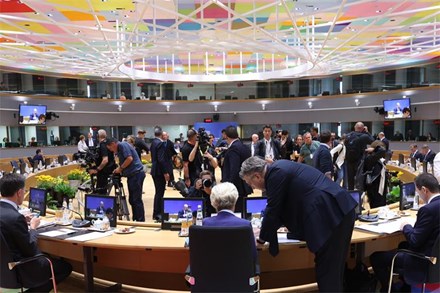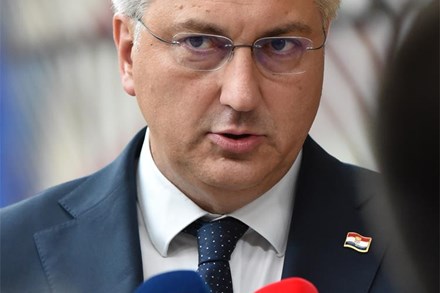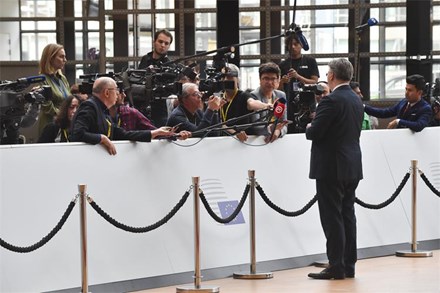Croatia's position is that the funds reserved for cohesion policy should not be touched
The position of the member states of the European Union that receive more from the European budget than they pay into it, including Croatia, is that cohesion funds should not be touched during the revision of the Multiannual Financial Framework. I think such a message was understood, Prime Minister Plenković told reporters in Brussels today after the European Council meeting, where the main topics were Russia's aggression against Ukraine and continued support for that country, economy, migration, security and defence, and foreign relations.
- 30.06.2023.
-
photo

He said that the leaders of the European Union discussed a number of important topics, as is usual, and this time NATO Secretary General Jens Stoltenberg joined them at the working lunch.
Yesterday's part of the meeting was dominated by the topics of defence, security and further aid to Ukraine, external security and migration, and today's part was relations with China and issues related to the economy and the revision of the Multiannual Financial Framework.
When it comes to topics related to the economy, Prime Minister Plenković emphasized the importance of economic and energy security at the meeting of the European Council.
He reminded that the revision of the Multiannual Financial Framework is foreseen for three reasons: further financial assistance to Ukraine, issues of migration and competitiveness.
The position of Croatia, as well as other countries that are net beneficiaries of cohesion funds, is to not touch the funds reserved for cohesion policy.
He also referred to the topic of demography, which was also included in the conclusions from today's meeting of the European Council.
He reminded that at the proposal of Croatia back in 2019, during the Romanian presidency of the Council of the EU, it was agreed for the first time that the topic of demography should be included in the portfolio of a member of the European Commission, in this case Vice-President Dubravka Šuica.
This topic, he added, has now become horizontal, and he once again underlined how important it is to create a framework that will deal with this issue in the long term at the level of the European Union.
Multiple benefits of the first ten years of Croatia's membership in the EU
Given that tomorrow is the tenth anniversary of Croatia's membership in the European Union, Prime Minister Plenković provided some information about the benefits of that membership for Croatia.
He reminded that Croatia has a surplus of 10.7 billion euros, and the multiple benefits of that membership are visible to citizens and the economy.
"We confirmed this in the mandates of our Government with the entry into the Schengen Area, the Eurozone and the European Stabilization Mechanism. The overall perception of Croatia's international reputation at this moment has never been better - from the investment credit rating to the way we are viewed by international and domestic financial markets and institutions. After ten years, Croatia's reputation in the EU is very strong, very solid, what we say is appreciated, what we suggest is listened to," said Prime Minister Plenković, adding that he believes that in ten years Croatia has done everything that was possible.
He reminded that in 2020 Croatia secured, after Greece, the most funds from the EU Next Generation Instrument, and in addition to funds from the Multiannual Financial Framework, a total of 25 billion euros.
Plus, he added, one billion and three million euros from the European Solidarity Fund for reconstruction after the earthquake, which were completely spent.








.jpg?preset=news-carousel-img)


